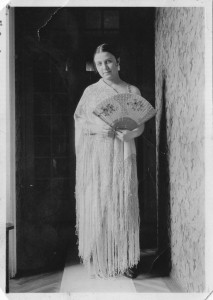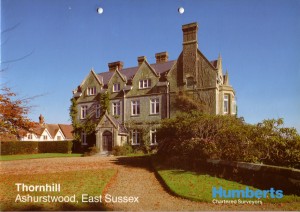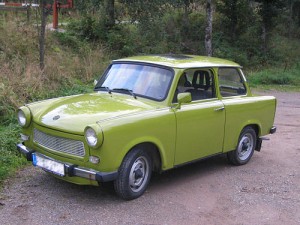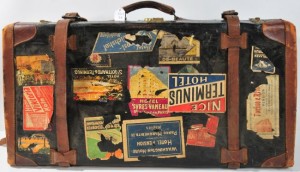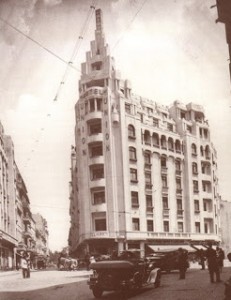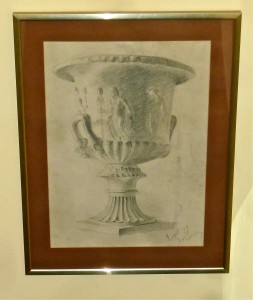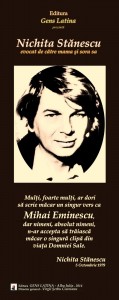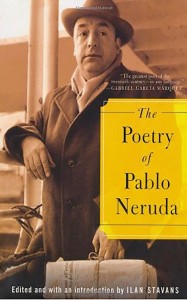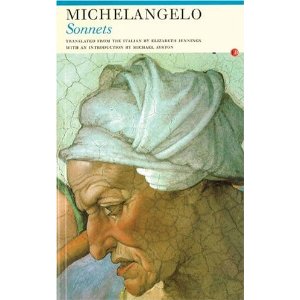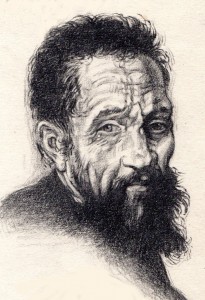ETERNAL REST IN BUCHAREST (PART 4 OF 6)
“En Roumanie tout est possible et rien
ne m’étonne plus!” (Emil Cioran)

Intercontinental Bucharest
4. Went back to the room to find the soap, shower gel and a set of towels already there. I turned the hot water tap in anticipation of having a shower. The gurgle and vibrations were such to compete with a brass and percussion band, but I was still hoping for the best. A first spurt of rusty water splashed in the shower tray. Never mind, I was used to this from staying in Victorian houses in the English shires, so in a way it was like home from home – I had to stay an optimist, or else I will go nuts!
Telephone rang! Ah it works, good. But who knows that I am here? Of course they know – they already sent me all those messages, which I forgot to read!
– Oh good, you are there, said the funeral cousin. I thought something happened to you, that you might have been bitten by a stray dog or that you might have fallen in a canal sewer!
– -No such luck, my dear, I am still of this world, but it took ages to sort myself out until I got in.
– I told you, you were much better off staying with me…
– I know, I know: I was not running away from you, but did not want to abuse your kindness. You have, as it is, enough on your plate organizing the funeral.
– We must meet at the cemetery tomorrow morning at 9AM – there is a lot of paperwork to do and you must collect the wreath.
– Ok, don’t worry I will be meeting you at the Administration office by the main gate.
– Oh, you remember that?
– Of course I do. I know it ever since I was a school boy and had to queue there with my poor Mother for grandparents funerals. Such a troth. People were behaving very badly, as if you owed them a living, rather than the other way round.
– They still do the same: the only difference now is that you must bribe them in dollars, I hope you have some on you.
– I have no dollars, I have only sterling with me – I had no time to change and at the hotel the rates are absurd. They have always been.
– Not to worry I will lend you some
– Thanks I will see you tomorrow
Barely put the receiver down and telephone rang again. At this rate I will never have a shower. I should be damned if I answered this. I marched instead in a determined way to the bathroom but the water was reduced to a trickle and it was still cold and rusty. I attempted to increase the flow. I went to the phone lifted the receiver and immediately cut it off. Rang the room service instead:
– Room 797 hot water is not working
– How long have you had it run, Mr Professor Doctor Engineer Sir?
– About fifteen minutes, I should say and it is still cold, still red and now it only trickles.
– Ah, that it means Mr Professor that your next door neighbour is having a bath, Sir. You must be patient. You will get your water as soon as he finishes. You will know as the flow will be back to normal, I promise you.
– Good, this is real science! I will remember it, thank you!
I slammed the receiver down only to hear the telephone ring again:
– Yes? Who is it? Vlad who? Ah, Vlad the driver, not Vlad the Impaler! Of course. You found me!
– Mr Professor Sir what time will you want me to come tomorrow?
– We shall have to be at the cemetery at nine AM, so make sure you are here at 8-30. What? it’s no good? Why shouldn’t not be any good? What? One needs at best 45 minutes to get there? Why, because of the pot holes, or what? Because of the traffic jams? Well but there are only two miles!
Aha! the cars are bumper to bumper! Can you drive a ‘copter? No? I mean a helicopter! Still no? Well then eight o’clock downstairs. Very clever of you to have found me! See you tomorrow at eight!
Telephone rang as soon as I put the receiver down.
– Oh not again! I should be damned if I answer this one!. Nobody else knows I am here. I shall not speak to anybody before I got my shower!
I took the offending phone and muffled it under the pillows and the bed cover.
I finally took the shower as the water regained a decent flow and transparent appearance and better still, it was hot: what an improvement since Ceuasescu’s days, when tepid water was running for a few minutes a day and the gas supply was rationed. Things had moved on! This is real democracy, I exclaimed on an upbeat note!

Hotel Breakfast
5. Alo, buna ziua Domnule Profesor Doctor Inginer. It is seven o clock and this is your early morning call, said the operator after I answered the phone, not remembering where I was and thinking that it was in a dingy hotel in Coventry. I went to the bathroom and run the hot water tap before the next-door neighbour might deprive me of my ablutions and was just immersed as I heard the knock at the door. Room service.
– Come in, do let yourself in!
I was not going to get out of the bath. I could hear the rattle of the trolley. The bathroom door was open. To my surprise the man asked:
– Would you like me to bring the coffee to your bathroom, Domnule Profesor?
– What a good idea, you read my mind!
When I looked up from my bathtub I thought I recognized the face:
– We have met before?
– Yes, we met yesterday, in the lift on the way up, said my shepherd boy
– You look good in your uniform, is this a part-time job?
– Yesterday was my day off.
He scanned my body persistently with his beady eyes. I took his coffee off him and added:
– I am afraid there is no joy for you, today either, but you can bring me the bathrobe, if you want to, as I get out of the bath.
He came back, helped me put it on and insisted that he should tie the belt for me: I thought his trousers were bursting, or it was just my imagination.
– Sorry I haven’t got any change for your services, but if you are on duty tomorrow I will give you a tip.
I was not certain that the disappointment I could detect in his face had to do with his imagined missed opportunity, rather than with the missed tip.
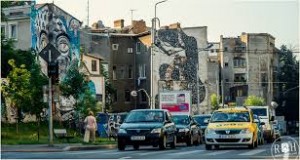
Bucharest traffic
I got ready hurriedly as the driver was due at eight. I could hear in my room the muffled roar of the traffic outside – Vlad was certainly right to warn me about the circulation problems in Bucharest after the revolution. I remember the office hours started early, on or before eight o’clock, which meant that people woke up at six or earlier to reach their place of work, in crowded public transport moving slowly in the dark and often dense fog of winter. The advantage was that they would finish work before 3PM and could take a late family lunch, practically enjoying half day home, or with friends.
Sure Vlad was already downstairs.
– Good morning, Vlad, how is the traffic problem this morning?
– Buna ziua Domnule professor. No better than any other day.
– Which way to the cemetery? Any idea of how to avoid the snarl-up?
– There is only one way – along the main north-south artery, the DN-1.
From the recesses of my memory I suddenly recalled that “DN” stood for “drumul national” (National Road).
– No chance, then to avoid that?
– Not really, it’s the same.
We engaged in the main boulevard and within half a mile, no sooner that we passed the Piata Unirii The cars thinned to a trickle. I looked at Vlad but did not ask the obvious question – surely in the morning the majority of cars headed from the southern dormitory suburbs of Giurgiului and Oltenitei into the centre where the offices were, rather than the opposite, which was our destination. I could not complain but could not help remarking to Vlad:
– You were a little pessimistic – we will be there in half the time.
– Or less.
And no sooner he said it, he pressed his foot on the accelerator, driving mercilessly over the potholes and ignoring junctions and traffic lights as if he was demented.
I looked at Vlad but he had a glacial face staring ahead of him. I thought quickly: as I am heading for the cemetery I will soon meet my Maker. There was precious little I could do and to argue would have been counter productive and even made things worse, so I put on an impassive expression waiting for Vlad to calm down. When he did, after five minutes of agony, which felt like ages of a merry-hell, I enquired:
– Was it really necessary to risk your life and mine? Why did you do that? We had all the time in the world to arrive early.
– Mr Professor Sir, you are English, aren’t you? But you are also a little bit Romanian!
– No, I am British – I am not English, because I was not born in England and I am naturalised British. What’s all about?
That baffled Vlad, like most Continentals could not make the difference between English and British, so I enquired:
– But why are you asking this all of a sudden?
– Because, Mr Professor Sir, you are also a little Romanian and you criticise too much all these things, the potholes in the road and everything.
Now I got the gist: I offended Vlad’s national pride and he was going to teach me a lesson: he was going to give me a fright by the way of retribution.
– But, I protested, you got something wrong: I am born here so I AM Romanian like yourself – nobody took my nationality away from me all these years and I have not renounced it, although I happen to be also a British national. So, as a Romanian I have as much right as you do to criticise things Romanian. After all you did not make a revolution for nothing; you now have free speech, you have the right to complain loudly without the fear of being put in jail.
I scrutinised his face but he did not appear satisfied with my answer: Vlad still considered me a foreigner and as such I was not expected to ill-speak of Romania, no matter how miserable it may have been. It reminded me of my erstwhile English wife who objected to my criticising things English to the point of despair, so I retorted:
– In Romania we could criticise to our heart’s content whatever we liked, so long as we kept it in the family circle, but not in the street. Here, in England it seems to be the other war round!

Bellu Orthodox Cemetery
Vlad was still in a serious sulk and there was no point in continuing this dialogue as we arrived at the blessed Bellu Orthodox cemetery. It was called “Bellu Orthodox” to distinguish it from the Bellu Roman Catholic, Bellu Protestant and Bellu Military , all on the same side of the road, next to each other. Opposite there was the Bellu Jewish cemetery of Hispanic Rite (Cimitirul Evreiesc de rit Spaniol). This was the Sephardic cemetery, to differentiate it from the Jewish Ashkenazy cemetery, which was elsewhere in town. The Spanish Sephardic diaspora settled in the Romanian Principalities at the time when they were expelled from Spain and they were granted trade privileges by the ruling princes of Wallachia and Moldavia.
I gave Vlad some money to pay the florist opposite the Cemetery’s main gate for the wreath we have ordered for Aunt Angelica’s funeral and told him to come with it to the Chapel of Rest, which was situated at the end of the main alleyway, facing the Gate.
Before I passed through the gate, which had a kind of belfry similar to those of Romanian monasteries, I could see the nine-foot long pole holding a black banner with Angelica’s surname on it “Lambrino” and her dates of birth and death. This was the custom indicating to the families which funerals were scheduled for the day. Lambrino was not Angelica’s maiden name but her former husband’s, which she kept after the divorce.

Cemetery Chapel
The chapel was in neoclassic style, surmounted by a central dome. It had an array of smaller semicircular side chapels, intended for all the other coffins ,which were waiting their turn for the funeral service. The coffin on the raised podium in the centre of the chapel was the first in the queue. Once the service was finished and the coffin and mourners left the chapel the next coffin would take its place, usually at hourly intervals, or longer. I looked with a sentiment of unease for Angelica’s coffin. All the coffin lids were open, so that one could pay one’s respects to the deceased, looking at his face with a sense of grief and compassion – often not a pretty sight, but such were the tenets of the Orthodox faith, with traditions steeped in millennial traditions.
By the time I could pay my respects to Angelica, I could hear high-heel footsteps trotting on the marble slabs, with the cousin bedecked in suitable mourning gear, rushing towards me:
– Here you are, I found you – I told you to wait for me at the cemetery office for the signatures. You are here instead!. You forgot to bring the wreath!
– I have not – the driver is doing it. He should be with us any minute – I do not know why he is late, he should not be!
– Maybe the wreath is not ready
– Have you placed a copper coin in Angelica’s hand, as it is the custom?
– Yes we did, of course we did, everything according to book!
– Good!

The Scream
This was the ancient custom, going back two thousand years to the Roman times, when the deceased had to pay the boatman money to cross the river Styx and this custom was adopted by the Christians, a tradition which survived to this day. I looked at Angelica’s face, instead of being serene, as dead bodies faces are, her mouth was widely open, expressing a sentiment of horror and despair like in the ‘Scream’ canvass of Edward Munch: simply could not understand as I knew, and everybody in Romania knew it, that no sooner that a person died one had to tie a scarf around its chin and head to make sure that the mouth staid firmly shut, until the body cooled and the muscles were gripped by
rigor mortis to keep it in this position. I looked in dismay as Angelica had no teeth either, by this I mean her denture, because she was 91 years of age.
– Poor old aunt Angelica, the cousin said, patting the corpse’s hand
– She looks horrid; why didn’t you tie a scarf round her chin?
– Because she died in the middle of the night
– What do you mean, in the middle of the night? I paid for a woman to live in and look after her 24 hours out of 24. I sent you all these monies from England! You mean to say that the carer was not there when Angelica died?
– She had a husband and family to look after: she had from time to time to go and cook for them!
– And I was paying her all this time, look at the result!
My imagination ran wild with visions of Angelica being left to starve, alone in her bed!
 My anger was staved off only by the arrival of Vlad with his wreath of fresh carnations.
My anger was staved off only by the arrival of Vlad with his wreath of fresh carnations.
– It looks good! Why did it take you so long?
– Because, imagine, Mr Professor Sir, when I arrived the carnations were all wilted in a deplorable state.
– I know, the cousin chipped in, this is exactly what the gypsies do: they recycle the flowers. They steal them from other wreaths in the cemetery and reuse them for new wreaths. Remind me to tell you what happened at poor Costi’s funearal
– And, I asked Vlad, what did you do?
– I told the gypsy, sir, that you were the nephew of the Bucharest Police Chief Commissioner and that you will have none of it; I told him to put fresh flowers and nothing else. He plucked out the wilted flowers and replaced them with fresh ones. He was not best pleased!
– I bet he wasn’t!
– (end of PART FOUR OF SIX)


